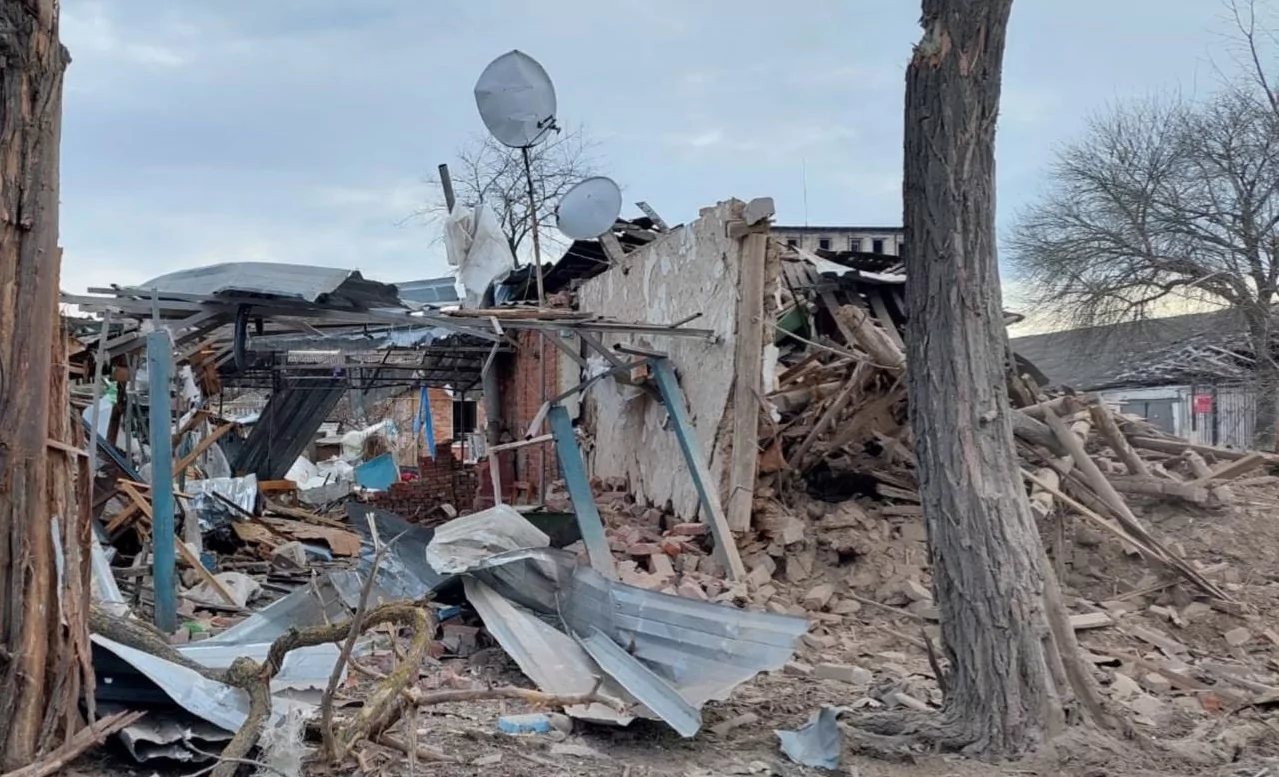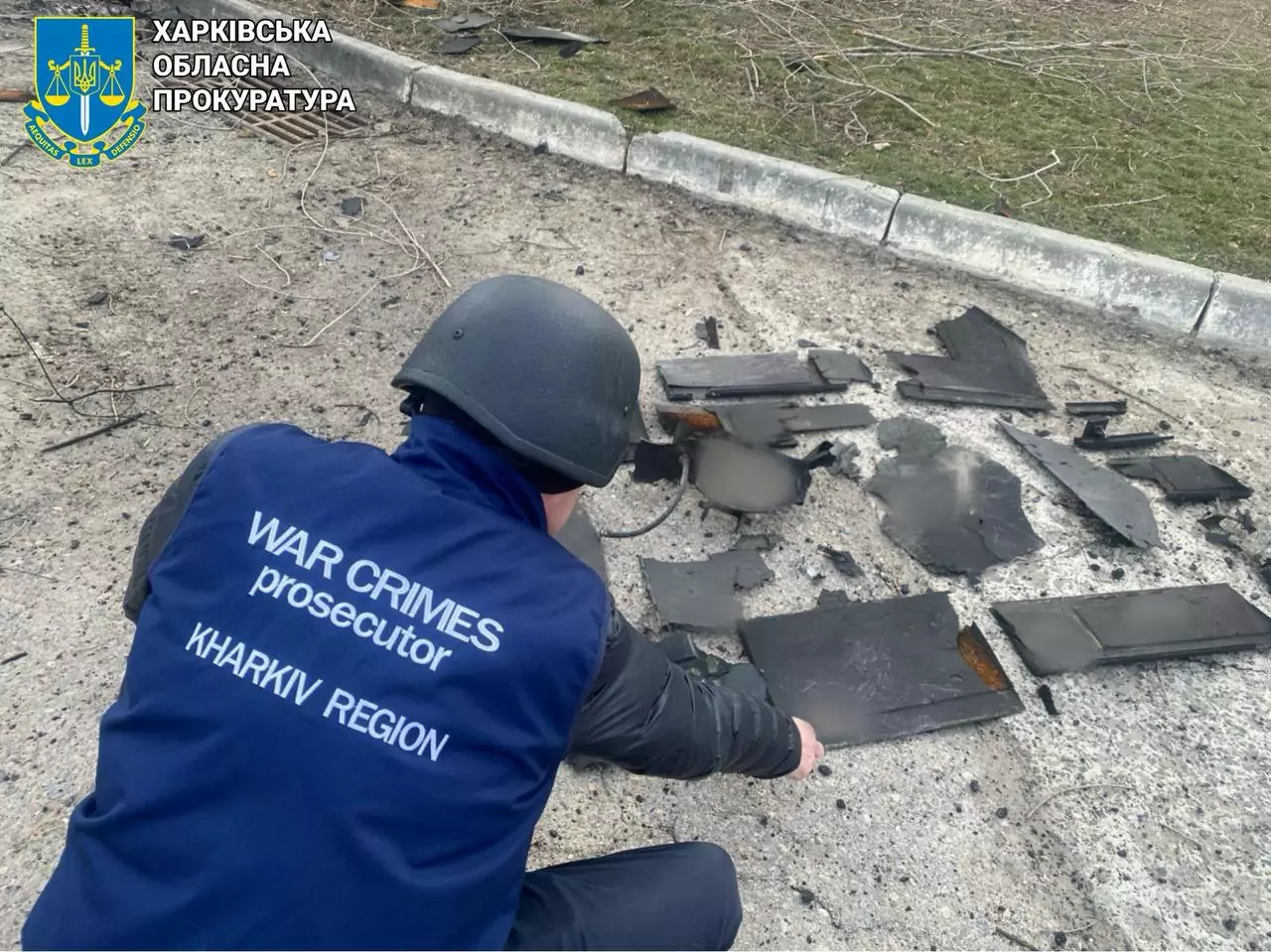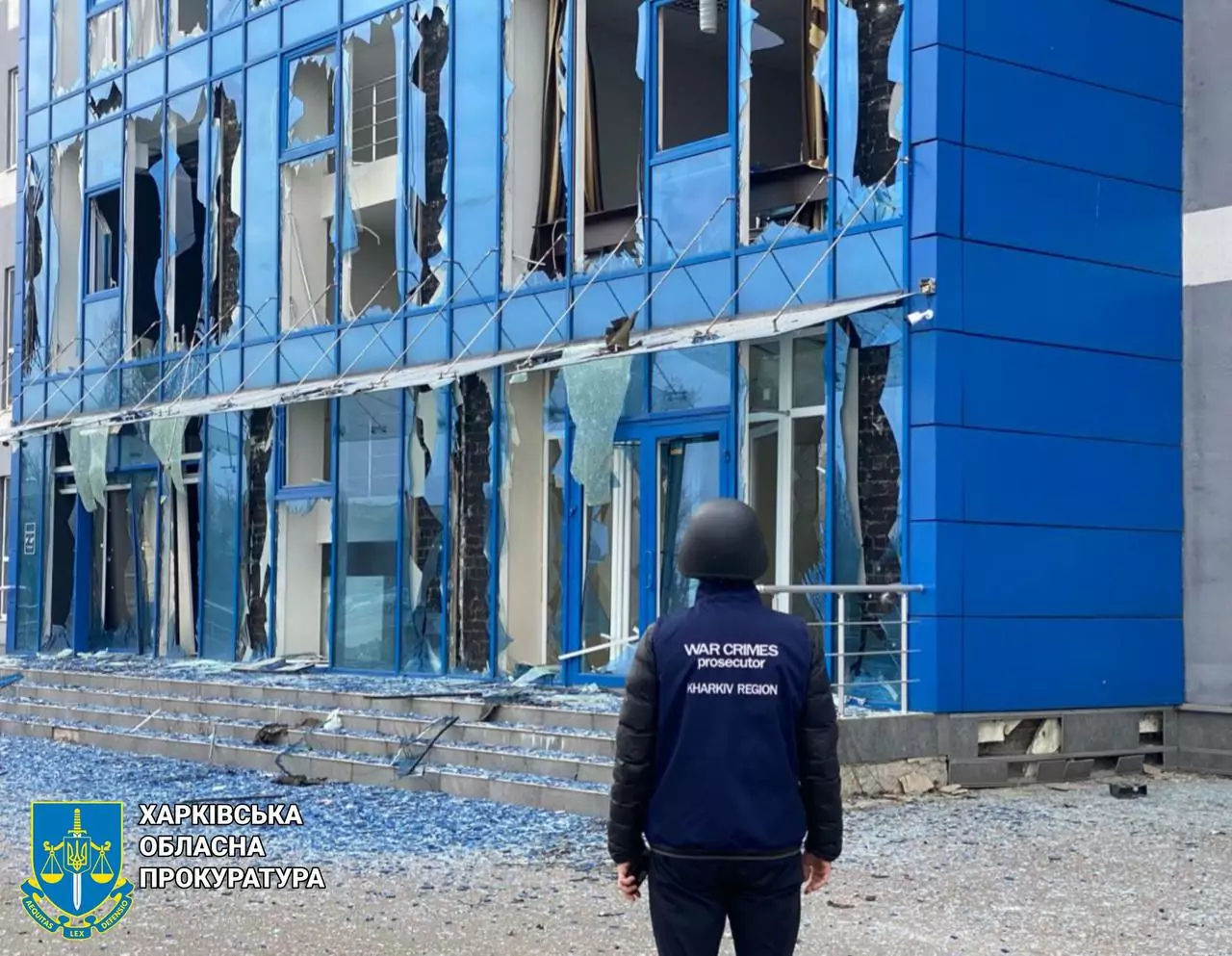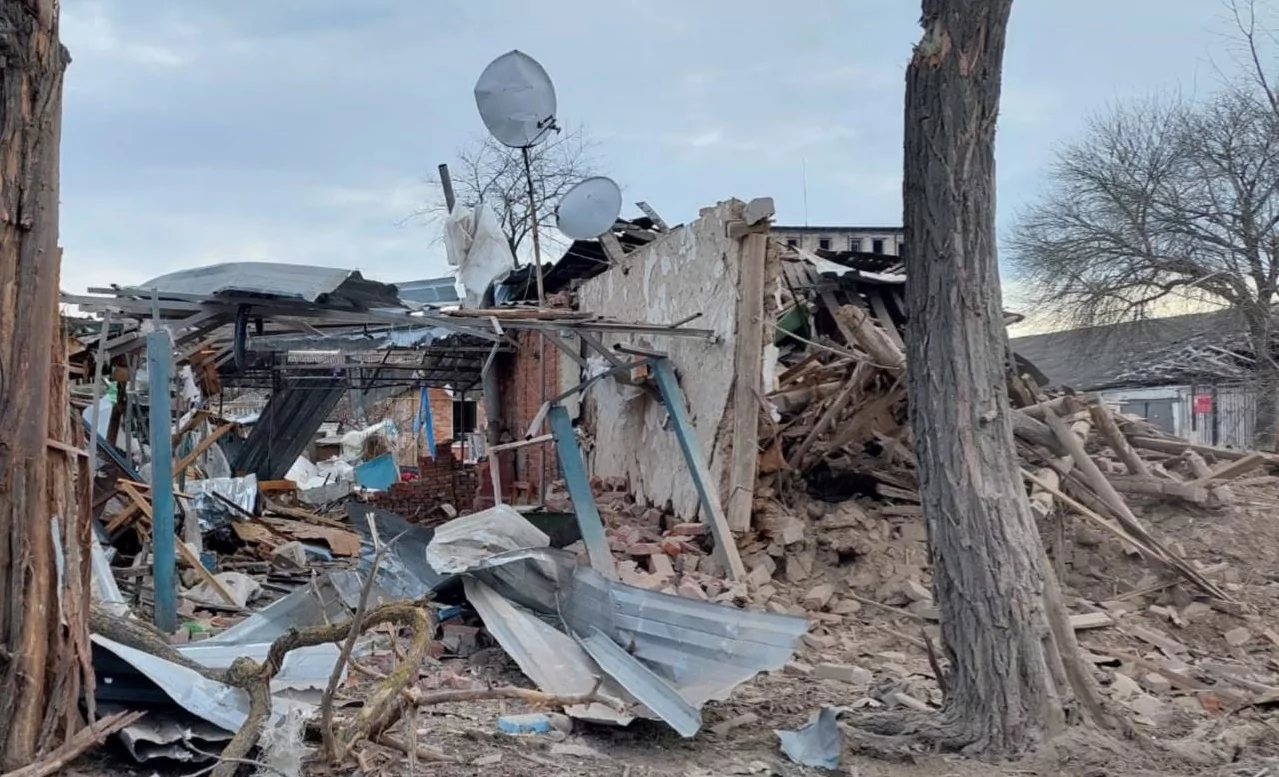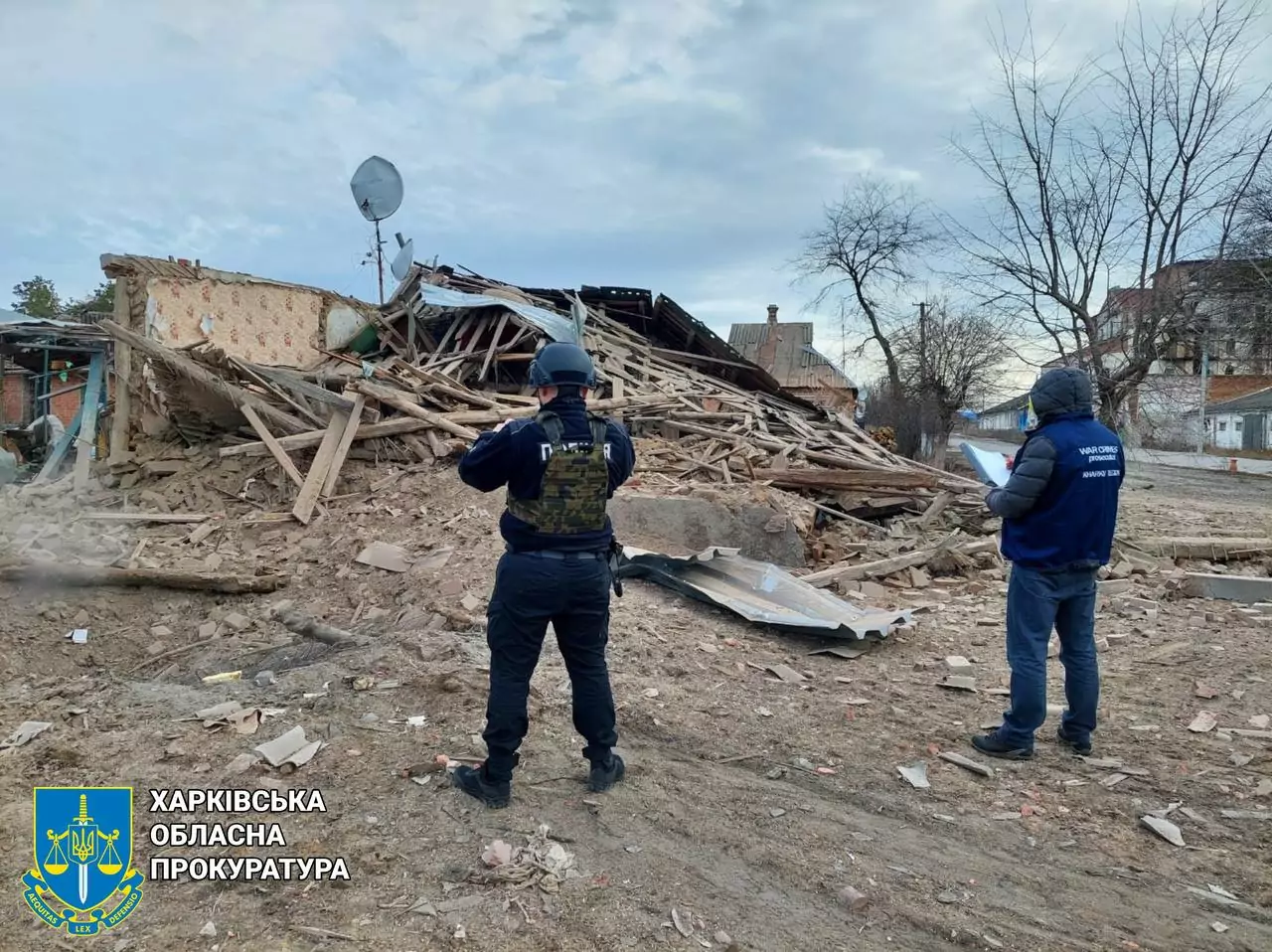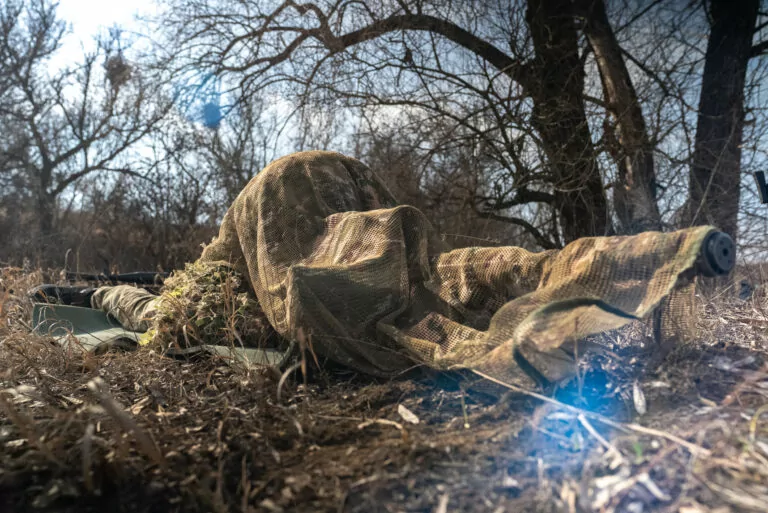UKRAINE, KHARKIV OBLAST, Mar 26 — At around 00:50 a.m. on March 26, the Russian military attacked Kharkiv with drones, reported the Kharkiv Regional Prosecutor’s Office. Five explosions were heard in the city.
According to the head of the Kharkiv Regional Military Administration, Oleh Syniehubov, the Air Defense Forces shot down at least eight drones over the Kharkiv Oblast. The Air Forces reported that they shot down all the drones over the Kharkiv Oblast.
Also, Ihor Terekhov, the mayor of Kharkiv, reported that one of the unmanned aerial vehicles (UAVs) hit nearby with a building. This Russian strike damaged a shop building in the Slobidskyi district.
In addition, at about 11:00 p.m. on March 25, the Russian troops hit the city of Vovchansk with an airstrike. There is information that the Russians used a KAB-250 aerial guided bomb [a 500-kilogram general-purpose aerial bomb with a high-explosive warhead developed in the Soviet Union — ed.] for the attack. The shelling damaged residential buildings and outbuildings.
On the evening of March 25, the Russian military shelled Derhachi, Kharkiv Oblast, with aerial bombs.
The attack damaged 20 private houses. The Russians also injured four women: two of them suffered explosive trauma, and the others had an acute stress reaction.
Read more
- Russian troops fired at the Derhachi community, which borders Russia, in the Kharkiv Oblast, at approximately 4:11 p.m. The Russian aerial bomb destroyed at least two houses and damaged about a dozen private houses. Four women aged 56, 58, 66, and 68 experienced an acute stress reaction but refused hospitalization.

